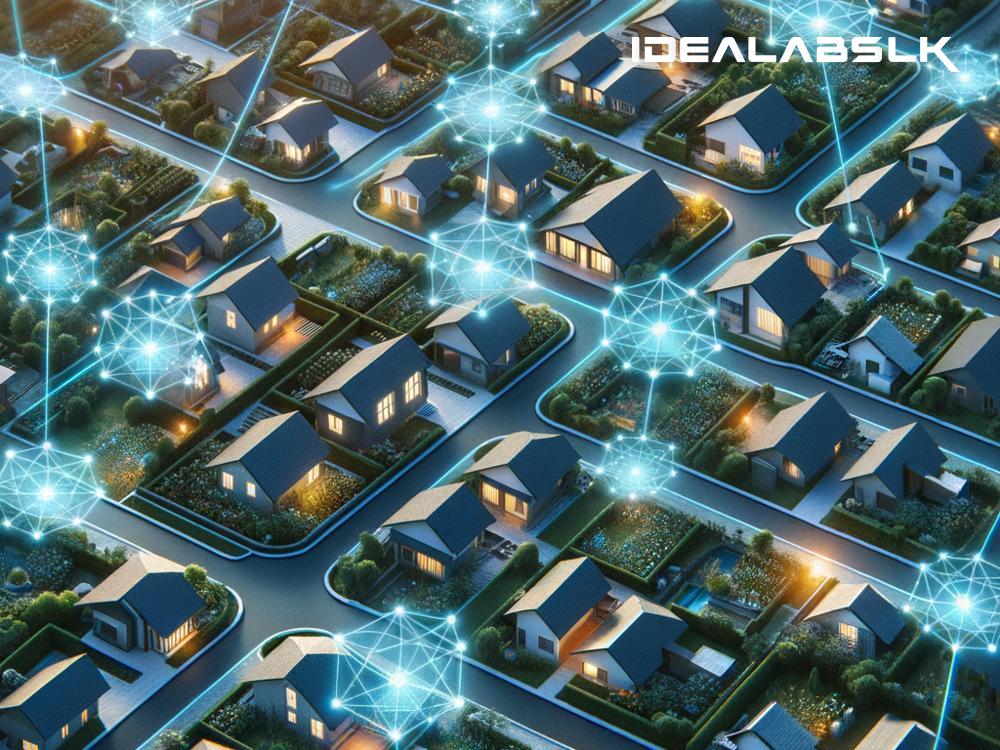Unlocking the Future: How Blockchain is Revolutionizing Real Estate Ownership Rights
In today's fast-evolving world, where technology leaps and bounds forward in mere moments, an extraordinary transformation is happening within the real estate industry, thanks to blockchain technology. This digital revolution is not just about making transactions faster or more efficient; it's about fundamentally changing how property ownership is recorded, transferred, and understood, making the whole process more transparent, secure, and accessible.
If you're scratching your head wondering what blockchain technology is, you're not alone. Simply put, blockchain is a type of database technology that maintains a secure and decentralized record of transactions. Each transaction, or "block," is linked to the previous one, creating a "chain." Imagine it as a digital ledger that is open for everyone to see, yet is incredibly secure and almost impossible to tamper with. This revolutionary technology, originally devised for digital currencies like Bitcoin, has far-reaching implications, especially in the world of real estate.
The Traditional Maze
Traditionally, buying or selling a property is a complex and paperwork-heavy process. It involves multiple parties, including agents, banks, and government entities, each performing checks and balances, which can make the process time-consuming and opaque. Moreover, the physical deeds to the property - the documents proving ownership - are susceptible to loss, damage, or fraud.
This is where blockchain steps in, promising to cut through this complexity like a hot knife through butter.
The Blockchain Beacon
So, how does blockchain promise to revolutionize real estate ownership rights? There are several key ways:
-
Enhanced Security and Transparency: With blockchain, every transaction is recorded on a secure, immutable ledger. This means once a property sale is recorded, it cannot be altered or erased, virtually eliminating the risk of fraud. This transparent system allows anyone to verify ownership quickly and accurately without the need for intermediaries.
-
Simplified Transactions: Blockchain can streamline the real estate buying process by enabling smart contracts. These digital contracts automatically execute transactions when certain conditions are met, removing the need for middlemen and reducing the time and cost associated with closing deals.
-
Improved Accessibility: By digitizing property records and using blockchain to manage these records, real estate investments become more accessible. People from anywhere in the world can invest in property or verify ownership without dealing with bureaucratic obstacles or geographic barriers.
-
Tokenization of Real Estate Assets: Imagine being able to buy a portion of a property the same way you buy stocks in a company. Blockchain makes this possible through tokenization, where real estate properties are divided into shareable digital tokens. This can open up investment opportunities to a broader audience, democratizing property investment.
Real-World Applications and Future Outlook
Several countries and companies are already exploring blockchain's potential in the real estate sector. Sweden's land registry authority, for instance, has experimented with recording property transactions on a blockchain, aiming to increase transparency and speed in the transfer of land and properties. In the private sector, numerous startups are working on blockchain platforms to facilitate real estate transactions, proving the concept is more than just theoretical.
Looking ahead, as the technology matures and becomes more widely adopted, we could see a real estate landscape vastly different from what we're accustomed to. Blockchain could render paper deeds obsolete, reduce the prevalence of fraudulent transactions to nearly zero, and make buying property as simple as clicking a button.
Navigating the Transition
However, realizing the full potential of blockchain in real estate won't happen overnight. It requires changes in regulations, the development of new technologies, and most importantly, a shift in mindset from traditional methods to digital innovation. Education will play a crucial role in this transition, ensuring that both industry professionals and the public understand and trust blockchain technology.
As we stand on the brink of this digital revolution in real estate, it's clear that blockchain holds the key to unlocking immense value in the realm of property ownership rights. Whether you're a homeowner, investor, or simply fascinated by the intersection of technology and real estate, the future is bright—and it's blockchain that's lighting the way.

